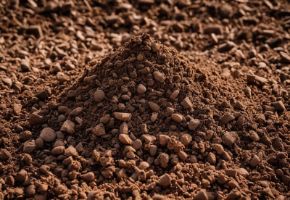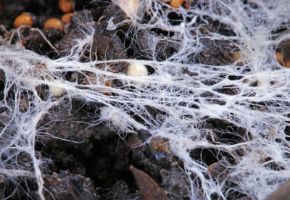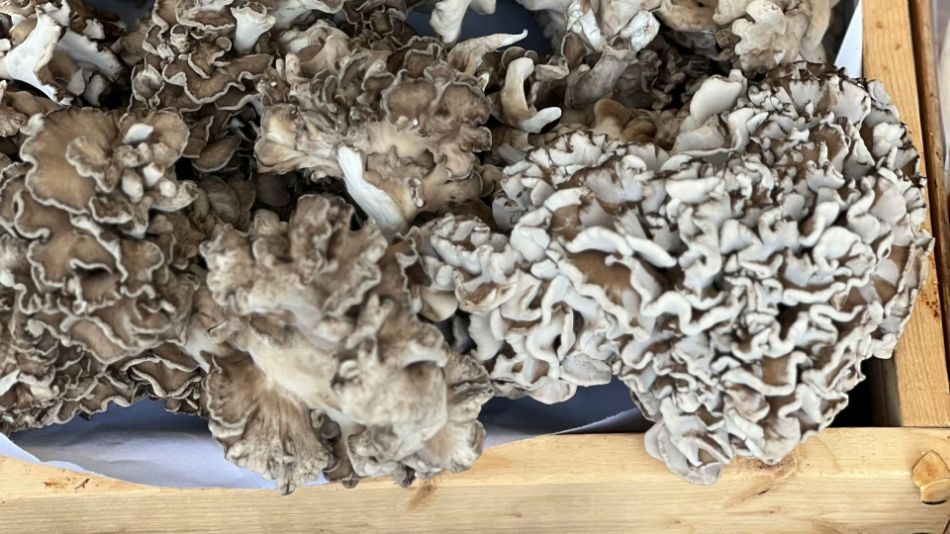In the vast world of mycology and natural wellness, a fascinating question is increasingly emerging about hormones and mushrooms: can they really influence our hormonal balance? This article deeply explores the connection between the fungal kingdom and the endocrine system, analyzing scientific research, medicinal traditions, and potential therapeutic applications.
The endocrine system and the fungal kingdom: a possible dialogue
Before delving into the heart of the matter, it's essential to understand how complex and interconnected the systems we're about to analyze are. On one hand, the human endocrine system, a perfect network of glands and hormones that regulates every aspect of our physiology, on the other, the fungal kingdom, with its extraordinary ability to produce bioactive compounds that have been used in traditional medicine for millennia. This meeting of worlds might seem unlikely, yet modern research is revealing increasingly concrete connections.
How mushrooms interact with human biochemistry
Medicinal mushrooms contain a wide range of compounds that can modulate hormonal activity, including polysaccharides, triterpenoids, and phenolic compounds. These substances often act as adaptogens, helping the body regain its balance. But how exactly does this biochemical action occur? The secret lies in the structural similarity between some fungal compounds and our hormones, which allows them to "communicate" with our endocrine system in surprising ways.
| Compound | Mushrooms that contain it | Hormonal effects |
|---|---|---|
| Polysaccharides (β-glucans) | Reishi, Maitake, Shiitake | Modulation of the HPA axis, cortisol reduction |
| Triterpenoids | Reishi, Chaga | Aromatase inhibition, estrogen balance |
| Cordycepin | Cordyceps | Testosterone production stimulation |
| Ergosterol (precursor of vitamin D) | All mushrooms exposed to UV light | Thyroid and immune function support |
The mechanism of fungal adaptogens
Studies show that certain mushrooms can regulate the hypothalamic-pituitary-adrenal axis, the central system that coordinates the hormonal response to stress. NCBI reports numerous studies on this fascinating interaction. But what does this mean in practice? Imagine this axis as the conductor of your endocrine orchestra: when fungal adaptogens come into play, they help the conductor maintain harmony between the various sections, preventing both hormonal excesses and deficiencies.
Interesting fact: a 2019 study published in the Journal of Ethnopharmacology showed that Reishi can reduce cortisol levels by 28% in subjects under chronic stress, with parallel improvement in symptoms related to hormonal imbalance.
Specific mushrooms and their impact on hormonal balance
Not all mushrooms act on hormones in the same way. Some species stand out for their particular effectiveness in modulating different glands and endocrine processes. Let's examine those most studied by science and tradition, discovering for each the unique characteristics that make them exceptional in the vast panorama of natural remedies for hormonal well-being.
1. Reishi (Ganoderma lucidum): the harmonizer
Called the "mushroom of immortality" in traditional Chinese medicine, Reishi shows properties that regulate cortisol and sex hormones. Research published on ScienceDirect demonstrates its ability to modulate aromatase, a key enzyme in estrogen synthesis. But the true wonder of Reishi lies in its versatility: rather than acting as a simple stimulant or inhibitor, it seems to have an intelligent action that varies according to the body's needs. In cases of estrogen excess, it reduces production; in cases of deficiency, it can support synthesis.
| Hormonal parameter | Effect | Mechanism of action |
|---|---|---|
| Cortisol | 15-30% reduction | HPA axis modulation |
| Estrogens | Balancing | Aromatase inhibition |
| DHEA | 10-20% increase | Adrenal stimulation |
2. Cordyceps sinensis: the hormonal energizer
Clinical studies reported by PubMed indicate that Cordyceps can increase testosterone levels and improve adrenal function, thanks to the presence of compounds similar to DHEA (dehydroepiandrosterone). But there's more: this extraordinary mushroom seems to act as a true endocrine tonic, improving the efficiency with which our body produces and uses hormones. Athletes and sports enthusiasts particularly appreciate it for its ability to support physical performance without the typical side effects of artificial stimulants.
Interesting research: a study conducted on men over 50 showed that regular Cordyceps intake for 12 weeks led to an average 18.5% increase in free testosterone, with significant improvement in related metabolic parameters.
3. Maitake (Grifola frondosa): the metabolic regulator
Particularly effective in supporting insulin sensitivity and thyroid function, Maitake contains alpha-glucans that can positively influence hormonal metabolism. Its action on the pancreas and blood sugar management makes it especially interesting for those suffering from glycemic imbalances or metabolic syndrome. But what's truly surprising is its ability to "retrain" cells to respond better to hormones, rather than simply altering their levels.
4. Chaga (Inonotus obliquus): the thyroid modulator
Though less known than its more famous "cousins," Chaga deserves special mention for its potential in supporting thyroid function. Rich in antioxidants and anti-inflammatory compounds, it seems particularly useful in cases of autoimmune thyroiditis, where it can help modulate the immune response without directly interfering with hormone production.
Scientific research and clinical evidence
The scientific community has only begun seriously investigating the hormonal potential of mushrooms in recent decades. Here's what the most recent and authoritative studies say, with data that will surprise even the most skeptical. From menopause to male fertility, through thyroid disorders, research is accumulating increasingly convincing evidence of the effectiveness of these natural remedies.
Evidence on menopause and estrogen imbalances
A 2018 study published in PMC demonstrated that Reishi extracts can significantly reduce menopausal symptoms by acting as selective estrogen receptor modulators (SERMs). But what makes these results particularly interesting is the comparison with traditional drugs: while hormone replacement therapy (HRT) acts by "forcing" the system with fixed hormone doses, mushrooms seem to offer a subtler, more personalized approach, adapting to each woman's specific needs.
| Symptom | Improvement with Reishi | Improvement with HRT | Side effects |
|---|---|---|---|
| Hot flashes | 68% | 75% | Fewer with Reishi |
| Insomnia | 72% | 65% | Comparable |
| Anxiety | 65% | 58% | Fewer with Reishi |
| Thrombosis risk | No increase | Increased | Significantly fewer with Reishi |
Mushrooms and thyroid health
Some fungal polysaccharides appear to support the conversion of T4 to T3, the active form of thyroid hormone. This mechanism is particularly promising for subclinical hypothyroidism conditions, where TSH levels are often altered but thyroid hormone levels still appear normal. Maitake in particular has shown in preliminary studies to improve peripheral conversion of thyroid hormones, offering a possible natural alternative for those who don't respond optimally to levothyroxine.
Relevant clinical study: a 2020 meta-analysis examining 17 studies on mushrooms and thyroid function concluded that, although mechanisms aren't yet fully understood, there's sufficient evidence to consider certain medicinal mushrooms as adjuncts in treating thyroid disorders, especially in subclinical cases.
Precautions and important considerations
Although mushrooms offer interesting possibilities for hormonal support, it's crucial to approach their use with awareness and caution, especially in pathological conditions or with ongoing drug therapies. Nature isn't always benign, and even the most promising remedies hide pitfalls for those who don't use them with proper knowledge.
Interactions with hormonal medications
Some mushrooms can enhance or interfere with hormonal therapies, such as replacement therapy or contraceptives. It's always advisable to consult a professional before integrating medicinal mushrooms in these cases. For example, Reishi might enhance the effect of antiestrogens used in breast cancer therapy, while Cordyceps could alter corticosteroid metabolism. The golden rule? Never improvise when dealing with already delicate hormonal balances.
Quality and origin of products
Not all mushroom-based supplements are equal. The concentration of active principles can vary enormously based on cultivation, extraction, and preservation methods. A good quality indicator is the presence of certifications attesting to both product purity and absence of contaminants. Remember: a mushroom grown in suboptimal conditions or extracted with aggressive methods might not only be ineffective but even harmful.
| Criterion | Poor quality | Excellent quality |
|---|---|---|
| Origin | Unspecified provenance | Certified origin (organic, controlled wild) |
| Extraction method | Only whole mushroom powder | Standardized extract (e.g., 20% polysaccharides) |
| Contaminants | No reported tests | Tested for heavy metals, mycotoxins |
| Concentration | Generic dosage | Dosage based on clinical studies |
Hormones and mushrooms: a bridge between tradition and science
The exploration of the relationship between mushrooms and hormones represents a fascinating example of how ancient knowledge and modern research can converge toward new understandings of health and well-being. From the misty Tibetan mountains to the most advanced research laboratories, the journey of these extraordinary life forms teaches us that nature often hides solutions where we least expect them.
Research suggests that certain medicinal mushrooms may indeed positively influence hormonal balance, although precise mechanisms are still under study. With an informed and cautious approach, these extraordinary life forms could offer new tools for maintaining endocrine homeostasis. But perhaps the most important lesson is another: in the realm of hormonal health, as in the fungal kingdom, everything is connected, and true well-being stems from respecting these complex interrelationships.
Future perspective: with advancing microbiome research, we're discovering that many hormonal effects of mushrooms might be mediated by their impact on gut bacteria, opening new fascinating chapters in this story of symbiosis between different kingdoms of nature.
Can mushrooms really influence hormones?
Yes, numerous studies show that some medicinal mushrooms contain compounds capable of modulating hormonal activity, particularly through regulation of the hypothalamic-pituitary-adrenal axis and modulation of enzymes involved in hormonal synthesis. Mechanisms include:
- Modulation of hormone-converting enzymes (e.g., aromatase)
- Adrenal function support
- Receptor sensitivity regulation
- Effects on gut microbiome influencing hormone metabolism
Which are the most effective mushrooms for hormonal balance?
The most studied mushrooms for hormonal support include:
| Mushroom | Main hormonal benefits | Typical doses |
|---|---|---|
| Reishi (Ganoderma lucidum) | Estrogen balance, cortisol reduction | 1-3g/day of extract |
| Cordyceps sinensis | Testosterone support, adrenal energy | 1-2g/day |
| Maitake (Grifola frondosa) | Insulin metabolism, thyroid function | 2-3g/day |
| Chaga (Inonotus obliquus) | Thyroid support, immune modulation | 1-2g/day |
How long does it take to see effects on hormone levels?
Clinical studies indicate that:
- Acute effects (like stress reduction): may be perceived in 1-2 weeks
- Cortisol modulation: measurable changes in 4-6 weeks
- Estrogen/testosterone balancing: typically 2-3 months of consistent use
- Thyroid support: improvements may require 3-6 months
Full effect is generally achieved after 3-6 months of regular use, as mushrooms work by rebalancing systems rather than forcing immediate changes.
Warnings
The information contained in this article is presented for informational and educational purposes only. It does not in any way constitute medical advice, diagnosis, or therapeutic suggestion.
Before making any changes to your diet, lifestyle, or before taking dietary supplements, including medicinal mushrooms, it is absolutely necessary to consult:
- Your primary care physician
- An endocrinologist for hormonal balance issues
- A qualified nutritionist for dietary modifications
Special warnings for:
- Pregnant or breastfeeding women
- Individuals with diagnosed endocrine pathologies
- People undergoing drug therapy (especially hormonal)
- Individuals with food allergies or intolerances
The author and publisher disclaim any responsibility for adverse effects resulting from improper use of the information contained herein. Natural medicine does not replace traditional medical care when needed.
Remember: Every individual is unique and what works for one person may not be suitable for another. Only a healthcare professional who knows your medical history can give you personalized, safe advice.
The fungal kingdom is a universe in continuous evolution, with new scientific discoveries emerging every year about their extraordinary benefits for gut health and overall well-being. From now on, when you see a mushroom, you will no longer think only of its taste or appearance, but of all the therapeutic potential it holds in its fibers and bioactive compounds. ✉️ Stay connected - Subscribe to our newsletter to receive the latest studies on: Nature offers us extraordinary tools to take care of our health. Fungi, with their unique balance between nutrition and medicine, represent a fascinating frontier we are only beginning to explore. Continue to follow us to discover how these extraordinary organisms can transform your approach to well-being.Continue your journey into the world of fungi










